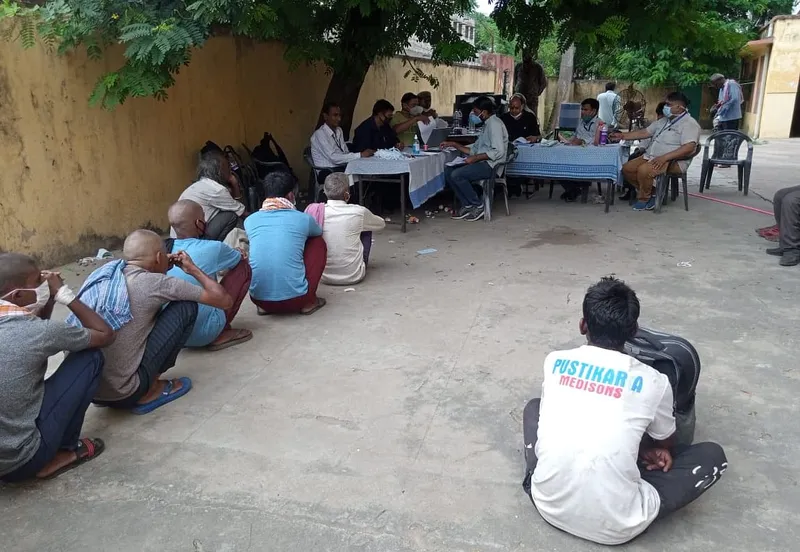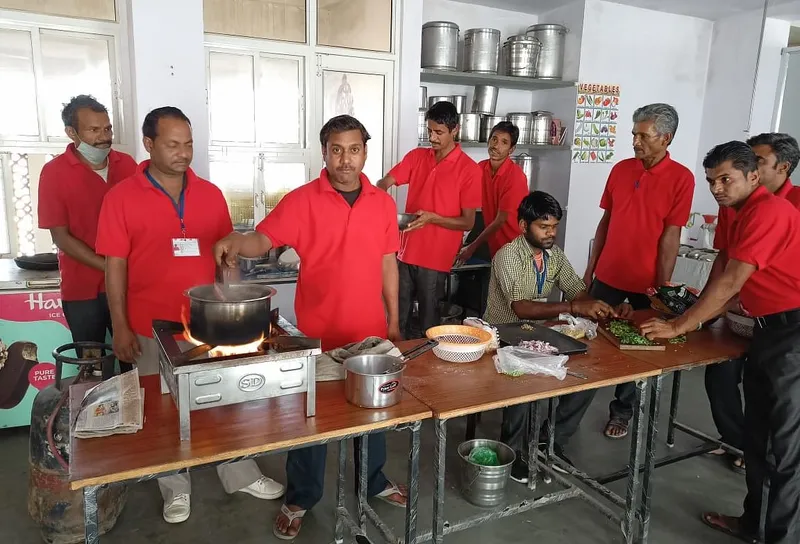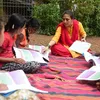How the BHOR Project is rehabilitating beggars and helping them earn a livelihood
The BHOR Project is part of the Rajasthan Skill and Livelihood Development Corporation and Skill India's effort to provide viable skills and livable incomes so people are not relying on handouts.
It is a dark reality that is visible at virtually every traffic signal, marketplace, and railway platform in the country. In India, begging for handouts and money is a practice that dates back to before medieval times, when it was even considered an acceptable economic activity.
Today, in the absence of federal laws banning begging, 22 states have passed their anti-begging laws. The Bombay Prevention of Begging Act, 1959, which serves as the basis for most of these laws at the State and Union Territory level sentences beggars to three years in jail for the first conviction and 10 years for subsequent convictions.
Despite this, it is believed that there are over 4,13,670 beggars in India with over 25, 853 living in Rajasthan alone, as per the 2011 Census.

The Jaipur Police has helped enrol over 100 beggars in the Bhor programme. They have received health checkups, vaccinations, grooming, soft skills and job training to work in the hospitality industry
There is a perception that beggars are those who are choosing the easy way out and have chosen this over ‘an honest day’s work’. The reality is that there are many reasons people turn to begging. This includes mass migration from villages to cities in search of jobs, lack of adequate employment opportunities, under-employment, inadequate compensation, discrimination against the physically handicapped, abandonment of ageing parents and widows, and even natural calamities that devastate lives and livelihoods.
While anti-begging legislation may act as a preventive, there is a need for a permanent solution for this crisis. Several state governments have instituted programmes aimed at the rehabilitation and skilling of beggars to provide them with viable employment.
The Rajasthan government launched the BHOR (Bhikshook Orientation and Rehabilitation) mission in December 2020 as a pilot project under the Rajasthan Skill and Livelihood Development Corporation (RSLDC). BHOR is a part of the SANKALP programme of the Ministry of Skill Development and Entrepreneurship (MSDE) in Rajasthan.
A multilevel scheme
The beggars are identified and rescued by the Jaipur Police, who bring them to the BHOR Centre in the state’s capital city. Before being inducted into the programme, the recruits are groomed and given a thorough health checkup, which includes the COVID-19 vaccination. They are also given counselling by a motivational coach, are trained in yoga, and given soft-skills training. There is also a deaddiction programme for those who need it. In addition to food and accommodation during the training period, they are insured for Rs 2 lakh under the Pradhan Mantri Suraksha Bima Yojana (PMSBY).
Once the recruit identifies their area of interest, they undergo training for 105 days in areas such as hospitality, cooking, confectionery making, and many others. As part of wage-loss compensation, an allowance of Rs 225 per day is paid to the recruits by RSLDC. The money is deposited in bank accounts opened at the time of recruitment. This is an addition to the free accommodation, food, and toiletries and clothes provided under the scheme.

The beneficiaries of the BHOR project have been trained to work in the hospitality industry.
Speaking to YourStory, Nalini Kathotia (IAS), Managing Director, Rajasthan Skill & Livelihoods Development Corporation (RSLDC), Jaipur, Rajasthan, said, “The BHOR pilot programme has been a positive step towards eradicating begging from Jaipur. Initial results have been quite encouraging.”
Towards empowerment
Since its inception, 100 recruits across five batches have been trained at two centres – Sopan Institute at Rajput Hostel and Green Line Systems Pvt Ltd – in Jaipur. Of them, 64 have found jobs at AkshayPatra, Fortis Hospital, Hotel Shahpura Residency, and other establishments in Jaipur. Two of the trainees have even set up their own food kiosks. The average monthly salary in the range of Rs 8,000 to Rs 10,000 with other essential amenities like accommodation and food. Recruits are also tracked periodically for over a year, once the training is over.
“This programme has been able to radically transform the lives of the beggars, who were a part of the project. It has been extremely rewarding to be a part of this project and see the beneficiaries realise their potential through the training sessions,” says Vinod Sharma, a trainer on the project.
The BHOR project is supported by the RSLDC, Commissionerate - Jaipur Police and the Social Justice and Empowerment Department Welfare Department. There are plans to scale the project by including new skilling programmes, making it a state-wide initiative and including women in the programme. The state police advised against the inclusion of women in the initial phase.
The programme has empowered the beggars to make a living and live a decent life. “It has given them a fresh start and will be replicated in other parts of the country in the future. The project will continue to grow and evolve based on the challenges and opportunities presented by different contexts, and keep changing people’s lives for the better,” Kathotia says.
For 35-year-old Brijraj, the programme has meant a fresh start. “The BHOR Programme has given me a new lease on life. From the grooming and training sessions, which have given me self-confidence to the skills I acquired, I am now have everything to earn a dignified livelihood.”
Edited by Teja Lele








